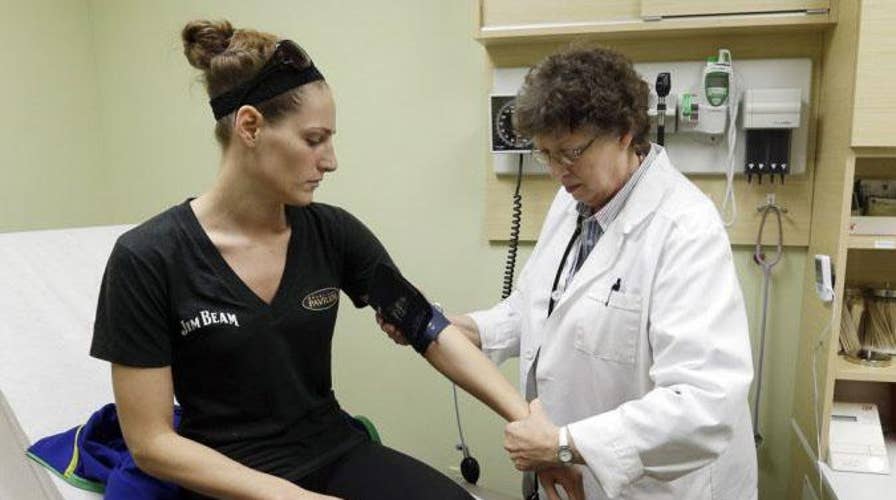It is no secret that federal health programs are growing at an unwieldy and ultimately cataclysmic rate. ObamaCare, Medicaid expansion, growing entitlements and new mandates are all contributing to the unchecked expansion of government controlled health care and the increasing liability for taxpayers.
In simple terms, the solution is to institute policies that will allow free-market principles to foster an environment where the individual patient is empowered just as customers are in virtually every other market. Such a market would allow consumers to choose medical care and insurance based on value and cost, rather than allow market participants and providers to rig the system to reap windfall profits due to government patronage.
This consolidation of medical services at the expense of patients shockingly underscores what government intrusion ultimately means for health care – less access, fewer choices and increased costs for patients, and taxpayers.
Case in point, a number of hospitals are taking advantage of a program that provides discounts on medications for low-income patients by turning it into a rich, unwarranted source of new cash. As established, hospitals can qualify for substantial discounts on medications through the Medicare 340B program without necessarily providing care to low-income patients. Even worse, hospitals are not required to pass along the discounted rates to the patients themselves. In fact, under our current health care and insurance systems, patients are largely powerless consumers.
The reason certain hospitals exploit the 340B program is a basic lack of price transparency. Hospitals are not required to post prices for treatments or medications. As a result, price disparity is staggering. For example, prices for nuclear stress tests across the New England area can range from $1,450 to over $7,000.
Because the 340B discounts extend to medications administered in clinics and outpatient facilities owned by the hospital, the program incentivizes hospitals to purchase small physician practices and convert them into hospital facilities. Not only does this mean that consumers face fewer choices due to this consolidation, care administered by hospitals is in many cases much more expensive than that administered in a doctor’s office. Not only do patients fail to receive the discounts that hospitals do, they also face a price increase for the same treatment.
Many hospitals have figured out how to reap the rewards from the program and are applying to participate in the program at an alarming rate. In fact, between 2005 and 2011, the number of hospitals and affiliated sites participating in 340B quadrupled, according to the GAO. This expansion was acutely exacerbated by the Medicaid expansion under ObamaCare, which made even more hospitals eligible for the program. As of 2013, over 10,000 entities are participating in 340B.
This consolidation of medical services at the expense of patients shockingly underscores what government intrusion ultimately means for health care – less access, fewer choices and increased costs for patients, and taxpayers.
The research–and-development based drug innovators and scientists are investing billions to bring critical new medicines to patients that need them. The hospitals, PBM’s and insurance companies have been in affect incentivized to take advantage of the obsolete ObamaCare program via murky regulatory and legislative loopholes at the expense of patients. This includes failing to publicly acknowledge – and pass on to consumers – steep discounts that are negotiated between themselves and drug makers.
It is critical for policymakers at both the legislative and regulatory levels to pursue changes that increase choice and boost consumerism in our medical care market. Tackling the flaws in a program that ostensibly was established to lower costs for low-income patients, but too often doesn’t, seems a pretty good place to initiate reforms such as transparency in pricing and passing on drug cost savings to consumers.
Fortunately, both Congress and the Trump Administration have taken some steps in that direction on the 340B program in recent months. The House Energy and Commerce Committee is examining oversight and utilization of the program. Additionally, the Centers for Medicare and Medicaid Services (CMS) announced that they would be reducing some Medicare reimbursement rates for drugs administered by 340B hospitals to help curb abuse of the program.
And in a clear indication that they’re on the right track to cancelling the blank check hospitals have been exploiting, several hospital associations immediately threatened to sue CMS over the change. Good! Let them do so and they will then have to defend their indefensible practices in full view of the public.





















